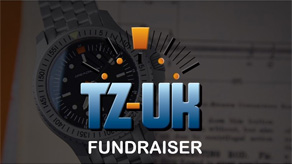By virtue of being COSC certified you are entitled to expect a performance between -4 and +6 seconds per day. I've had non-COSC run happily within this as well (both my Damaskos do), but on the other hand I don't get worried unless they're more than 20 per day out. At that point it's a bit annoying and I'd think about getting them regulated (well, I would if I knew anyone local who could do it). I prefer them to run fast rather than slow as well.






 Reply With Quote
Reply With Quote



